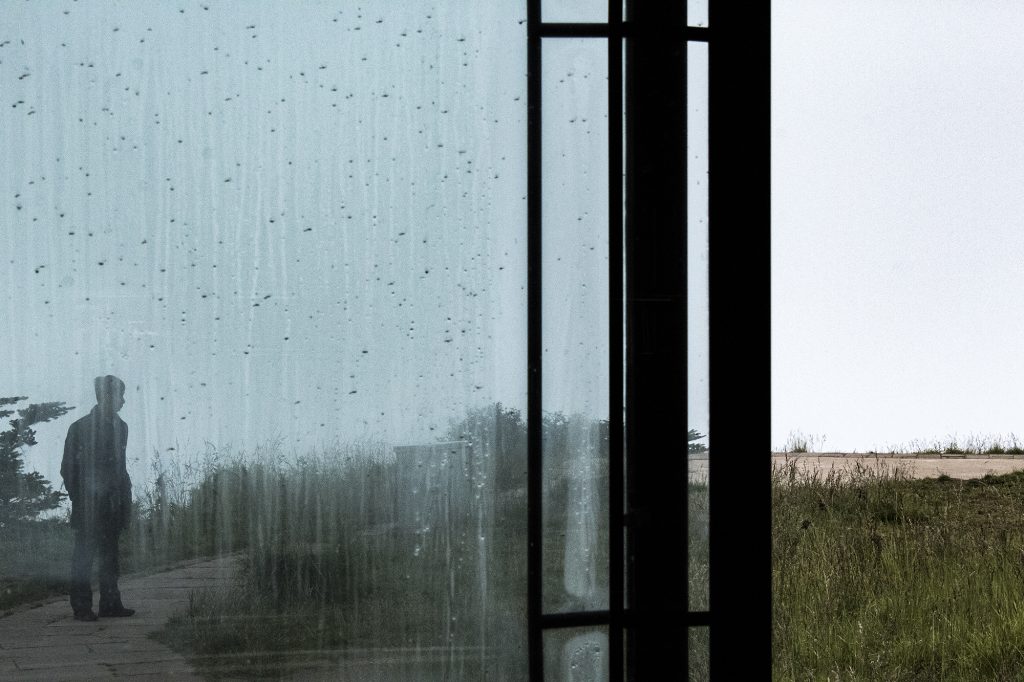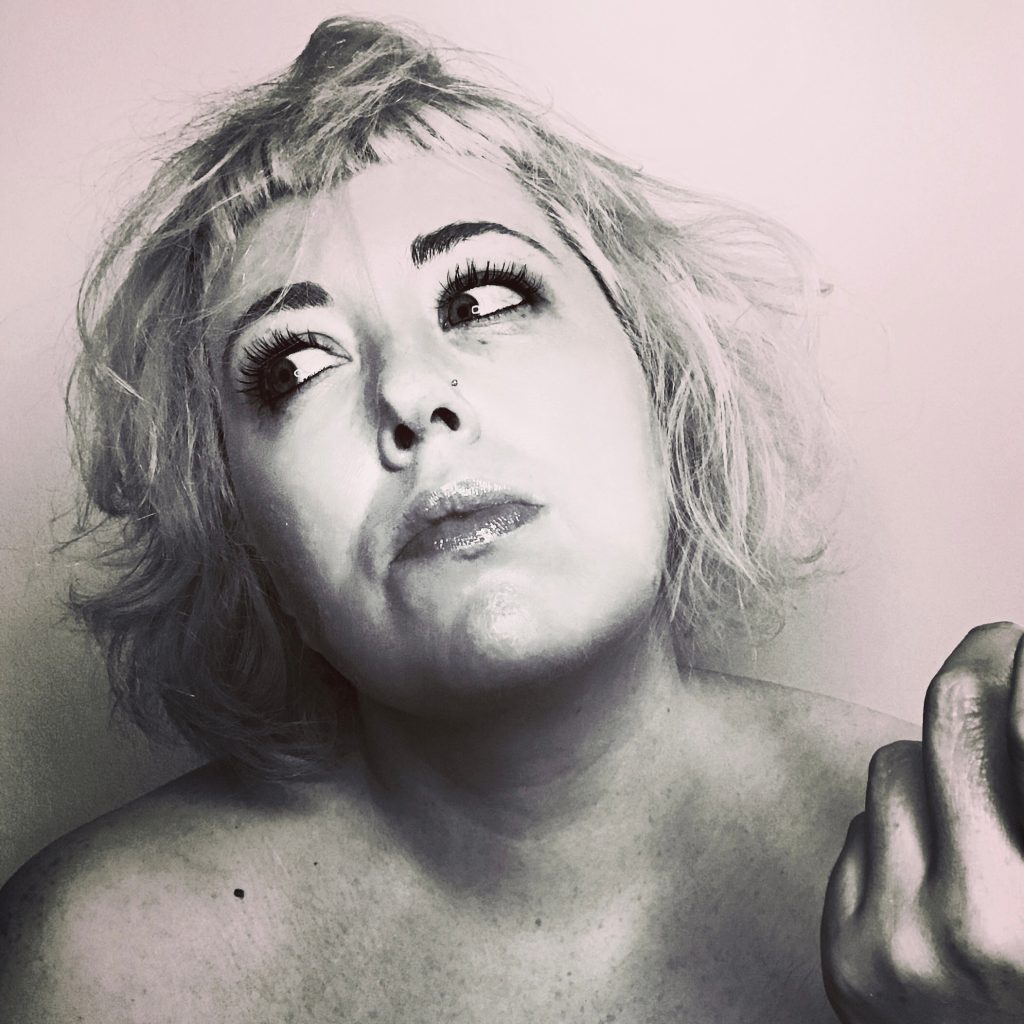Let In
henry hu


Poetry Contributor
Jesica Davis is a poet and technical writer from Chicago. She’s an Associate Editor/Managing Editor for Inverted Syntax literary journal whose work has appeared in Storm Cellar, streetcake magazine, The Laurel Review, Kissing Dynamite, Zone 3, and other places. Sometimes she makes poemboxes, which are sculptural interpretations of her poems.
See j3s.net for more.
Julia M. C. M.
Trigger Warning: Grief, Suicide
I don’t know the night as well as I would like
But I spend all my time, staring at the sky,
And the Stars, and wondering if I’ll see wings or scars
Shoot in front of the Moon, to keep me company
On lonely walks, empty thoughts, memories lost,
And all the other wounds that bleed and burn
At night, or when the sun is high in the sky,
While I try to find reasons why,
Not to take my own life,
To finally close my eyes,
Only to open them,
And see you again.

Photography Contributor
Parker Cassel is a writer, performer and visual artist from London, U.K.
Kate Gough
Trigger Warning: chronic illness and hospitalization
Poppy pills and hospital bills,
The void, she costs more than I thought.
As I cut off the paper bracelet,
I wonder when the prickly tenderness
will paint its pain on my organs once more.
And the others, they try to help, in their own narrow ways.
Cathedral thunder and chicken noodle soup,
they threaten and soothe in the same breath.
Alone, I am, as they forget soon enough.
Chronic, I am stuck inside, as the world breathes,
through coughing fits, I try to get some sleep.
And in my dreams the void, she sings to me.
She tells me how the world sees me.
Helpless, poor little thing, barely lives,
they gasp.
But she, she cannot judge.
She can only prance through darkness
to cloak the ever toxic positivity.
The void, she carries me evermore,
as I live my life in sick captivity.
I live in reality, denial cobwebs the streets,
and in them I sneeze.
Alone, I am, but the void is home to me.
Amanda Crum
When the wind wakes the trees, he thought. That’s when I’ll get up.
Daniel lay in the dark tube of Monday morning, watching the shadow-branches dance on the ceiling, and realized the trees were already awake. He’d been able to smell the storm coming last night as he smoked his last cigarette on the balcony and knew it would be here by dawn. Every time a storm came after dark, he made a bargain with himself that he wouldn’t leave the comfort of his sheets until it broke the atmosphere; sleep was precious to him, but he didn’t like lying prone in bed when the air was tinged with ozone. There were too many things that could go wrong. He could already hear thunder grumbling in the distance like an old dog having a bad dream.
A look outside the floor-to-ceiling windows gave him a panoramic view of the city below, spread out like a blanket of lights. Julia had remarked once how odd it was that a man who disliked storms would buy a house encased in glass. Daniel didn’t have an answer, except that the view afforded him the ability to see anything coming his way. He had never liked to have the room at his back, which was one of the reasons Julia left. She’d said it was too embarrassing to go out to dinner with him–the few times they went anywhere–because there were so few places he could sit and eat comfortably. She never understood him. There was a darkness in him that whispered commands, and what would happen if he failed to follow them?
He knew even as a child that when something bad happened, he was to blame. His earliest memory was of the car accident that left a gash in his mother’s head, of shimmering glass and a sound like fury. He was four and wanted to see the ducks down at the lake; the dirt road had turned to silvery mud the night before in a rainstorm. Afterward, he would catch his mother watching him, could feel her thinking about his utter wrongness and the uneven paths he had created for her.
When he became old enough to figure things out for himself, worrying became his hobby. Terrible things still happened, of course, but he discovered that if he opened himself up to his anxiety and let it guide him, things were a little better for everyone else. On March 23, for instance, he worried himself into a bout of diarrhea and not one murder was reported in any of the major newspapers around the globe. Two days after that, he’d let his guard down because he was tired. While he was asleep, dreaming of soft shores beneath a moon with no memory, a parking garage in his own hometown collapsed, killing five people. No one knew who was to blame, but Daniel knew, and it made him feel like a fraud.
Social media helped, of course. Seven different news feeds, all constantly refreshing to give him the most up-to-date horrors across the globe. He kept three phones–one on the nightstand, one in the car, and one at work–so he would never miss anything. He’d thought about tossing one, slowly weaning off the network, but that was just the meds talking. This was the most connected he had ever felt to anything.
A spear of lightning streaked towards the earth, bringing a peal of thunder with it. Daniel turned on his bare heel and ran for the bathroom, gagging on the taste of sushi as it came up and flooded the toilet. His stomach did a greasy roll and he knelt on one knee, resting his forehead on the cool porcelain as he waited for another wave to hit. He looked up, catching his gaze on the little brown bottle on the sink, and felt a curl of rage come to life in his stomach.
He’d felt it before. Two tiny cylinders every 4-6 hours would suppress his anxiety, keep the worry buried deep down where it used to live. He could almost taste them, feel the perforated coating on his tongue, but the last time had been bad. Very, very bad. Planes had fallen from the sky. 97 children had been kidnapped, killed, or had endured terrible accidents. Relationships had faltered, then burned to the ground. Without Daniel to worry, to shoulder that burden, air traffic controllers had lost interest in their jobs.
Mothers forgot to tend to their children. Stormy skies became broken marriages and fractured friendships. He’d read all the world’s news stories for two weeks straight, each day worse than the last, until he came to terms with what he had to do and stopped taking the pills. Worrying was his job. He stood shakily and regarded the bottle with hatred.
Another Monday morning had come, and with it, the weight of the world.

Poetry Contributor
Rebecca Lilly earned degrees from Cornell (M.F.A., poetry) and Princeton (Ph.D., philosophy) Universities and works as a writer and photographer. Among her several collections of poems, her most recent is Creatures Among Us (Broadstone, 2019), a book of prose poetry. An earlier collection, You Want to Sell Me a Small Antique (Gibbs Smith), won the Peregrine Smith Poetry Prize, and several books of her short poetry and haiku appear from Red Moon Press. Journals publishing her poems include Conjunctions, Hotel Amerika, The Iowa Review, London Magazine, New American Writing, Rosebud and Stand.
Her website is RebeccaLilly.studio
Lynn White
I know that tomorrow will bring
a new beginning,
another new beginning
and I wonder,
when will I reach the end
of my beginnings.
The beginning and end
in harmony,
the end beginning
when everything is completed
and nothing left to be started.
This time will come.
It’s getting closer,
closer and closer.
Perhaps it has already come
and I haven’t noticed.
But I don’t think so.
So I will carry on
towards my new beginning
and cease to wonder
how it will end.